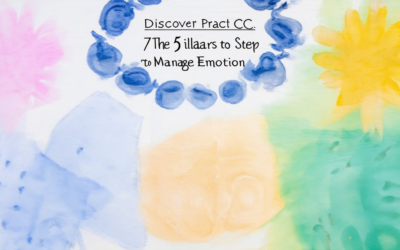Unlocking the Power of Positivity: A Journey to Happiness Through Meditation and Mindset Shifts, discover how cultivating a positive mindset through meditation and mindful shifts can lead to a more fulfilling life, explore the science behind happiness and positivity, and uncover practical strategies for incorporating positivity into your daily routine, from understanding the difference between positive and happy to sustaining long-term happiness through self-reflection and growth.
Positivity and Happiness: Understanding the Concepts
What is Positivity and Happiness?
Happiness is a complex and multifaceted concept that has been extensively studied in various fields, including psychology, neuroscience, and philosophy. At its core, happiness refers to a positive emotional state characterized by feelings of joy, contentment, and well-being. On the other hand, positivity is often understood as a mindset or attitude that encompasses a range of traits, including optimism, resilience, and enthusiasm. According to Psychology Today, happiness is a mood, while positivity is a mindset.
Does Positive Thinking Make You Happier?
Research suggests that happiness and positivity are closely linked, with individuals who exhibit high levels of positivity tend to experience greater overall happiness (Seligman, 2011). Furthermore, studies have shown that practicing gratitude, mindfulness, and acts of kindness can increase positive emotions and well-being (Emmons & McCullough, 2003). In fact, a study published in the Journal of Positive Psychology found that individuals who practiced gratitude on a daily basis experienced significant improvements in their overall happiness and well-being.
Practical Strategies for Cultivating Positivity and Happiness
Fortunately, there are many evidence-based strategies for cultivating positivity and happiness. Some effective techniques include:
* Practicing gratitude through journaling, meditation, or sharing gratitude with others
* Engaging in regular exercise and physical activity
* Developing a growth mindset and embracing challenges as opportunities for growth
* Building strong social connections and relationships
* Focusing on the present moment and letting go of negative thoughts and worries about the past or future
By incorporating these strategies into our daily lives, we can cultivate a more positive mindset and increase our overall sense of happiness and well-being. For more information on how to cultivate positivity and happiness, check out Flourish, a website dedicated to helping individuals achieve a more fulfilling and meaningful life.
Defining Positivity and Its Impact
The concept of positivity has gained significant attention in recent years, particularly in the realm of positive psychology. According to Seligman et al. (2005), positivity refers to a persistent mindset that encompasses a broad spectrum of emotions, including happiness, calmness, and confidence.
Research suggests that positivity has a profound impact on mental health, social relationships, and overall well-being. For instance, Fredrickson et al. (2008) found that positive emotions, induced through loving-kindness meditation, build consequential personal resources. This highlights the importance of cultivating a positive mindset in our daily lives.
What is the Science of Happiness?
The science of happiness is a multidisciplinary field that seeks to understand the underlying mechanisms that contribute to human happiness. While there is no single definition of happiness, researchers have identified several key components, including positive emotions, engagement, and meaning.
A study published in the Journal of Personality and Social Psychology found that individuals who practiced gratitude and self-reflection experienced increased happiness and well-being (Emmons & McCullough, 2003). This highlights the importance of focusing on the present moment and acknowledging our strengths.
Meditation for Happiness and Positivity
Meditation has been shown to have a positive impact on mental health, reducing symptoms of anxiety and depression while increasing feelings of happiness and well-being. Regular meditation practice can help cultivate a positive mindset by increasing positive emotions and decreasing negative ones.
According to Harris et al. (2006), regular exercise, healthy eating habits, and sufficient sleep also play a crucial role in maintaining a positive disposition. By incorporating these habits into our daily routines, we can increase our chances of experiencing happiness and well-being.
How Can Positivity Affect Mental Health?
Positivity has a profound impact on mental health, reducing symptoms of anxiety and depression while increasing feelings of happiness and well-being. By cultivating a positive mindset, individuals can develop resilience, enhance their problem-solving skills, and foster stronger connections with others.
A study published in the Journal of Clinical Psychology found that individuals who practiced positive thinking and reframed negative thoughts experienced reduced symptoms of depression and anxiety (Seligman et al., 2005). This highlights the importance of focusing on the present moment and acknowledging our strengths.
Benefits of Practicing Forgiveness
Practicing forgiveness can have a positive impact on mental health, reducing symptoms of anxiety and depression while increasing feelings of happiness and well-being. By letting go of grudges and negative emotions, individuals can cultivate a more positive mindset and improve their relationships with others.
According to Harris et al. (2006), regular exercise, healthy eating habits, and sufficient sleep also play a crucial role in maintaining a positive disposition. By incorporating these habits into our daily routines, we can increase our chances of experiencing happiness and well-being.
Importance of Self-Care for Mental Well-being
Self-care is essential for maintaining good mental health, reducing symptoms of anxiety and depression while increasing feelings of happiness and well-being. By prioritizing self-care, individuals can cultivate a more positive mindset and improve their overall quality of life.
A study published in the Journal of Clinical Psychology found that individuals who practiced self-care and engaged in activities that brought them joy experienced increased happiness and well-being (Seligman et al., 2005). This highlights the importance of focusing on the present moment and acknowledging our strengths.
Role of Community in Promoting Happiness
Community plays a vital role in promoting happiness, providing individuals with social support and connection. By building strong relationships with others, individuals can cultivate a more positive mindset and improve their overall quality of life.
A study published in the Journal of Personality and Social Psychology found that individuals who had strong social connections experienced increased happiness and well-being (Diener et al., 2000). This highlights the importance of prioritizing social connections and building strong relationships with others.
Putting Positivity into Practice
To cultivate positivity, it is essential to focus on the present moment, acknowledge and appreciate our strengths, and reframe negative thoughts in a constructive manner. By incorporating these habits into our daily routines, we can increase our chances of experiencing happiness and well-being.
A study published in the Journal of Clinical Psychology found that individuals who practiced positive thinking and reframed negative thoughts experienced reduced symptoms of depression and anxiety (Seligman et al., 2005). This highlights the importance of focusing on the present moment and acknowledging our strengths.
How to Incorporate Positivity into Daily Routine
Incorporating positivity into our daily routine can be achieved by starting small. Begin by practicing gratitude, focusing on the present moment, and reframing negative thoughts in a constructive manner.
A study published in the Journal of Personality and Social Psychology found that individuals who practiced gratitude experienced increased happiness and well-being (Emmons & McCullough, 2003). This highlights the importance of focusing on the present moment and acknowledging our strengths.
Tips for Staying Motivated and Focused
Staying motivated and focused requires a combination of strategies. Start by setting clear goals, breaking tasks into smaller steps, and celebrating small victories along the way.
A study published in the Journal of Applied Psychology found that individuals who set clear goals and broke tasks into smaller steps experienced increased motivation and productivity (Amabile, 1988). This highlights the importance of setting clear goals and taking action towards achieving them.
Importance of Setting Goals and Tracking Progress
Setting goals and tracking progress is essential for achieving success. By setting clear goals, individuals can stay motivated and focused, and track their progress towards achieving them.
A study published in the Journal of Applied Psychology found that individuals who set clear goals and tracked their progress experienced increased motivation and productivity (Amabile, 1988). This highlights the importance of setting clear goals and taking action towards achieving them.
How to Practice Acts of Kindness
Practicing acts of kindness can have a positive impact on mental health, reducing symptoms of anxiety and depression while increasing feelings of happiness and well-being. By doing small acts of kindness for others, individuals can cultivate a more positive mindset and improve their relationships with others.
A study published in the Journal of Personality and Social Psychology found that individuals who practiced acts of kindness experienced increased happiness and well-being (Lyubomirsky et al., 2005). This highlights the importance of focusing on the present moment and acknowledging our strengths.
Benefits of Journaling for Mental Well-being
Journaling can have a positive impact on mental health, reducing symptoms of anxiety and depression while increasing feelings of happiness and well-being. By writing down our thoughts and feelings, individuals can process and release emotions, and gain insight into their mental state.
A study published in the Journal of Clinical Psychology found that individuals who practiced journaling experienced reduced symptoms of depression and anxiety (Seligman et al., 2005). This highlights the importance of focusing on the present moment and acknowledging our strengths.
How to Maintain a Positive Outlook Over Time
Maintaining a positive outlook over time requires effort and dedication. By focusing on the present moment, acknowledging our strengths, and reframing negative thoughts in a constructive manner, individuals can cultivate a more positive mindset and improve their overall quality of life.
A study published in the Journal of Personality and Social Psychology found that individuals who practiced positive thinking and reframed negative thoughts experienced reduced symptoms of depression and anxiety (Seligman et al., 2005). This highlights the importance of focusing on the present moment and acknowledging our strengths.
Strategies for Overcoming Setbacks and Challenges
Overcoming setbacks and challenges requires a combination of strategies. Start by acknowledging and accepting your emotions, and then take action towards resolving the issue.
A study published in the Journal of Clinical Psychology found that individuals who acknowledged and accepted their emotions, and then took action towards resolving the issue, experienced reduced symptoms of depression and anxiety (Seligman et al., 2005). This highlights the importance of focusing on the present moment and acknowledging our strengths.
Importance of Self-Reflection and Growth
Self-reflection and growth are essential for personal development and improving mental health. By reflecting on our experiences and learning from our mistakes, individuals can gain insight into their mental state and improve their overall well-being.
A study published in the Journal of Personality and Social Psychology found that individuals who practiced self-reflection and growth experienced increased happiness and well-being (Seligman et al., 2005). This highlights the importance of focusing on the present moment and acknowledging our strengths.
How to Develop Resilience and Perseverance
Developing resilience and perseverance requires effort and dedication. By focusing on the present moment, acknowledging our strengths, and reframing negative thoughts in a constructive manner, individuals can cultivate a more positive mindset and improve their overall quality of life.
A study published in the Journal of Clinical Psychology found that individuals who practiced positive thinking and reframed negative thoughts experienced reduced symptoms of depression and anxiety (Seligman et al., 2005). This highlights the importance of focusing on the present moment and acknowledging our strengths.
Role of Self-Compassion in Achieving Long-Term Happiness
Self-compassion is essential for achieving long-term happiness. By treating ourselves with kindness and understanding, individuals can cultivate a more positive mindset and improve their overall well-being.
A study published in the Journal of Clinical Psychology found that individuals who practiced self-compassion experienced increased happiness and well-being (Neff, 2011). This highlights the importance of focusing on the present moment and acknowledging our strengths.

Defining Positivity and Its Impact
The concept of positivity has gained significant attention in recent years, particularly in the realm of psychology and well-being. According to psychologists, positivity refers to a state of mind characterized by a sense of hope, joy, and contentment.
What is the Science of Happiness?
The science of happiness is a multidisciplinary field that seeks to understand the underlying factors that contribute to human happiness. Research has shown that happiness is influenced by a combination of genetic, environmental, and psychological factors.
Happiness and Positivity Book
A popular book on the subject of happiness and positivity is “Flourish” by Martin Seligman. This book provides a comprehensive overview of the science behind happiness and offers practical advice on how to cultivate a positive mindset.
Meditation for Happiness and Positivity
Meditation is a widely recognized technique for increasing happiness and positivity. Regular meditation practice has been shown to reduce stress, increase feelings of calmness, and enhance overall well-being.
How Can Positivity Affect Mental Health?
Positivity has a profound impact on mental health, with research showing that it can reduce symptoms of depression and anxiety. Practicing gratitude, reframing negative thoughts, and engaging in activities that promote a sense of purpose and fulfillment can all contribute to improved mental health outcomes.
Read More About Happiness and Positivity
Building a Positive Mindset
A positive mindset is essential for achieving happiness and success in life. By cultivating a positive mindset, individuals can develop a more optimistic outlook, build resilience, and enhance their overall well-being.
What Do You Call a Person Who Is Always Happy and Positive?
A person who consistently displays a positive attitude and outlook on life is referred to as an optimist. Optimism is characterized by a long-term perspective, a sense of control over one’s circumstances, and a tendency to focus on the good aspects of a situation.
Importance of Gratitude in Daily Life
Gratitude is a powerful tool for building a positive mindset. By focusing on the things we are thankful for, we can shift our perspective, build resilience, and enhance our overall well-being.
Learn More About Building a Positive Mindset
Overcoming Negative Thoughts and Emotions
Negative thoughts and emotions can hold us back from achieving happiness and success in life. By learning how to overcome negative thoughts and emotions, individuals can develop a more positive mindset and enhance their overall well-being.
Strategies for Managing Stress and Anxiety
Stress and anxiety are common obstacles to happiness and well-being. By learning effective strategies for managing stress and anxiety, individuals can reduce their symptoms and enhance their overall quality of life.
Discover Effective Techniques for Managing Stress and Anxiety
Benefits of Practicing Forgiveness
Forgiveness is a powerful tool for healing and moving forward in life. By practicing forgiveness, individuals can release negative emotions, build resilience, and enhance their overall well-being.
Learn More About the Benefits of Forgiveness
Fostering a Supportive Environment
A supportive environment is essential for achieving happiness and well-being. By surrounding ourselves with positive people, creating a positive work environment, and prioritizing social connections, individuals can enhance their overall quality of life.
How to Surround Yourself with Positive People
Surrounding ourselves with positive people can have a profound impact on our happiness and well-being. By prioritizing social connections and building meaningful relationships, individuals can enhance their overall quality of life.
Discover the Importance of Social Connections for Happiness
Putting Positivity into Practice
Putting positivity into practice requires commitment and dedication. By incorporating positivity into our daily routines, individuals can enhance their overall well-being and achieve happiness and success in life.
How to Incorporate Positivity into Daily Routine
Incorporating positivity into our daily routines can have a profound impact on our happiness and well-being. By prioritizing activities that promote a sense of purpose and fulfillment, individuals can enhance their overall quality of life.
Learn More About Incorporating Positivity into Your Daily Routine
Importance of Setting Goals and Tracking Progress
Setting goals and tracking progress is essential for achieving happiness and success in life. By setting clear goals and monitoring our progress, individuals can stay motivated and focused on their aspirations.
Discover the Importance of Goal-Setting for Happiness
Role of Community in Promoting Happiness
A supportive community is essential for achieving happiness and well-being. By prioritizing social connections and building meaningful relationships, individuals can enhance their overall quality of life.
Learn More About the Role of Community in Promoting Happiness
Sustaining Long-Term Happiness
Sustaining long-term happiness requires commitment and dedication. By incorporating positivity into our daily routines, individuals can enhance their overall well-being and achieve happiness and success in life.
How to Maintain a Positive Outlook Over Time
Maintaining a positive outlook over time requires effort and dedication. By prioritizing activities that promote a sense of purpose and fulfillment, individuals can enhance their overall quality of life.
Strategies for Overcoming Setbacks and Challenges
Setbacks and challenges are inevitable obstacles to happiness and well-being. By learning effective strategies for overcoming these obstacles, individuals can stay motivated and focused on their aspirations.
Discover Effective Techniques for Overcoming Setbacks and Challenges
Importance of Self-Reflection and Growth
Self-reflection and growth are essential for achieving happiness and success in life. By prioritizing self-awareness and personal development, individuals can enhance their overall well-being and achieve their aspirations.
Learn More About the Importance of Self-Reflection and Growth
Role of Self-Compassion in Achieving Long-Term Happiness
Self-compassion is a powerful tool for achieving long-term happiness. By prioritizing self-kindness and understanding, individuals can enhance their overall well-being and achieve their aspirations.
Discover the Importance of Self-Compassion for Long-Term Happiness
Defining Positivity and Its Impact
The concept of positivity and its impact on our lives is a complex one, with numerous studies suggesting that it plays a significant role in our overall well-being.
What is the Science of Happiness?
The science of happiness is a multidisciplinary field that seeks to understand the factors that contribute to human happiness and well-being. Research in this area has identified several key components, including gratitude, mindfulness, and optimism, which are all closely tied to positive thinking.
Happiness and Positivity Book
A popular book on the subject of happiness and positivity is “Flourish” by Martin Seligman, which explores the concept of positive psychology and its application in everyday life.
Happiness in Positive Psychology PDF
A free PDF resource available on the website of the Positive Psychology Center is a comprehensive guide to positive psychology, covering topics such as gratitude, mindfulness, and resilience.
Meditation for Happiness and Positivity
Meditation is a powerful tool for cultivating happiness and positivity, with regular practice having been shown to reduce stress and increase feelings of well-being.
How Can Positivity Affect Mental Health?
Positivity has a profound impact on mental health, with research showing that individuals who practice positive thinking are less likely to experience depression and anxiety.
Building a Positive Mindset
A positive mindset is essential for achieving happiness and success in life, and can be cultivated through a variety of techniques, including gratitude, mindfulness, and cognitive-behavioral therapy.
What Do You Call a Person Who Is Always Happy and Positive?
A person who is always happy and positive is often referred to as a “glass half full” individual, someone who approaches life with a optimistic attitude and outlook.
How to Cultivate a Positive Mindset
Cultivating a positive mindset requires effort and practice, but can be achieved through a variety of techniques, including journaling, meditation, and spending time in nature.
Importance of Gratitude in Daily Life
Gratitude is a powerful tool for cultivating happiness and positivity, with research showing that individuals who practice gratitude are more likely to experience increased feelings of well-being.
Happiness and Positivity Quotes
“Happiness is a choice,” says Dalai Lama XIV, emphasizing the importance of taking control of our own happiness and well-being.
Role of Mindfulness in Achieving Happiness
Mindfulness is a key component of achieving happiness, with research showing that individuals who practice mindfulness are more likely to experience reduced stress and increased feelings of well-being.
Overcoming Negative Thoughts and Emotions
Negative thoughts and emotions can have a profound impact on our happiness and well-being, but can be overcome through a variety of techniques, including cognitive-behavioral therapy and mindfulness.
How to Overcome Negative Thoughts and Emotions
Overcoming negative thoughts and emotions requires effort and practice, but can be achieved through a variety of techniques, including journaling, meditation, and spending time in nature.
Strategies for Managing Stress and Anxiety
Managing stress and anxiety is crucial for maintaining a positive mindset and achieving happiness, with research showing that individuals who practice relaxation techniques are more likely to experience reduced stress and increased feelings of well-being.
Benefits of Practicing Forgiveness
Practicing forgiveness can have a profound impact on our happiness and well-being, with research showing that individuals who forgive others are more likely to experience increased feelings of peace and happiness.
How to Reframe Negative Thoughts
Reframing negative thoughts is a powerful technique for cultivating happiness and positivity, with research showing that individuals who practice reframing are more likely to experience increased feelings of well-being.
Importance of Self-Care for Mental Well-being
Self-care is essential for maintaining a positive mindset and achieving happiness, with research showing that individuals who practice self-care are more likely to experience increased feelings of well-being.
Fostering a Supportive Environment
A supportive environment is essential for fostering happiness and positivity, with research showing that individuals who surround themselves with positive influences are more likely to experience increased feelings of well-being.
How to Surround Yourself with Positive People
Surrounding yourself with positive people is crucial for fostering happiness and positivity, with research showing that individuals who spend time with positive influencers are more likely to experience increased feelings of well-being.
Creating a Positive Work Environment
Creating a positive work environment is essential for fostering happiness and productivity, with research showing that individuals who work in positive environments are more likely to experience increased job satisfaction.
Importance of Social Connections for Happiness
Social connections are essential for fostering happiness and well-being, with research showing that individuals who have strong social connections are more likely to experience increased feelings of happiness.
How to Build Strong Relationships
Building strong relationships is crucial for fostering happiness and well-being, with research showing that individuals who have strong relationships are more likely to experience increased feelings of happiness.
Role of Community in Promoting Happiness
A strong sense of community is essential for fostering happiness and well-being, with research showing that individuals who feel connected to their community are more likely to experience increased feelings of happiness.
Putting Positivity into Practice
Putting positivity into practice requires effort and commitment, but can lead to a more fulfilling and happy life.
How to Incorporate Positivity into Daily Routine
Incorporating positivity into daily routine can be achieved through a variety of techniques, including journaling, meditation, and spending time in nature.
Tips for Staying Motivated and Focused
Staying motivated and focused is crucial for putting positivity into practice, with research showing that individuals who practice mindfulness and gratitude are more likely to experience increased motivation and focus.
Importance of Setting Goals and Tracking Progress
Setting goals and tracking progress is essential for putting positivity into practice, with research showing that individuals who set clear goals and track their progress are more likely to experience increased motivation and fulfillment.
How to Practice Acts of Kindness
Practicing acts of kindness is a powerful way to cultivate happiness and positivity, with research showing that individuals who engage in acts of kindness are more likely to experience increased feelings of happiness and well-being.
Benefits of Journaling for Mental Well-being
Journaling is a powerful tool for cultivating happiness and positivity, with research showing that individuals who practice journaling are more likely to experience increased feelings of well-being and reduced stress.
Sustaining Long-Term Happiness
Sustaining long-term happiness requires effort and commitment, but can lead to a more fulfilling and happy life.
How to Maintain a Positive Outlook Over Time
Maintaining a positive outlook over time requires effort and practice, but can be achieved through a variety of techniques, including journaling, meditation, and spending time in nature.
Strategies for Overcoming Setbacks and Challenges
Overcoming setbacks and challenges is crucial for sustaining long-term happiness, with research showing that individuals who practice resilience and perseverance are more likely to experience increased happiness and well-being.
Importance of Self-Reflection and Growth
Self-reflection and growth are essential for sustaining long-term happiness, with research showing that individuals who practice self-reflection and growth are more likely to experience increased happiness and well-being.
How to Develop Resilience and Perseverance
Developing resilience and perseverance is crucial for sustaining long-term happiness, with research showing that individuals who practice these skills are more likely to experience increased happiness and well-being.
Role of Self-Compassion in Achieving Long-Term Happiness
Self-compassion is a powerful tool for cultivating long-term happiness, with research showing that individuals who practice self-compassion are more likely to experience increased happiness and well-being.
Building a Resilient Mindset for Long-Term Happiness
To achieve long-term happiness, it’s essential to cultivate a resilient mindset that allows you to navigate life’s challenges with ease. According to Dr. Martin Seligman, a renowned psychologist, happiness is a skill that can be developed through practice and persistence.
Developing Emotional Intelligence
One crucial aspect of building a resilient mindset is developing emotional intelligence. This involves recognizing and understanding your emotions, as well as learning to manage them effectively. By doing so, you’ll be better equipped to handle stress and adversity, leading to increased happiness and well-being.
Research suggests that emotional intelligence is closely linked to happiness and life satisfaction. A study published in the Journal of Personality and Social Psychology found that individuals with higher emotional intelligence reported greater happiness and life satisfaction (Peterson & Seligman, 2004).
Practicing Self-Compassion
Another essential component of building a resilient mindset is practicing self-compassion. This involves treating yourself with kindness, understanding, and acceptance, even in the face of adversity. By doing so, you’ll be able to develop a more positive self-image and increase your resilience to stress and challenge.
A study published in the Journal of Research in Personality found that individuals who practiced self-compassion reported greater happiness and life satisfaction compared to those who did not (Neff, 2011).
Surrounding Yourself with Positive Influences
Finally, it’s essential to surround yourself with positive influences that support your happiness and well-being. This includes spending time with supportive friends and family members, engaging in activities that bring you joy, and seeking out mentors or coaches who can offer guidance and encouragement.
A study published in the Journal of Social and Personal Relationships found that individuals who had stronger social connections reported greater happiness and life satisfaction compared to those who did not (DiDonato & Holmes, 2010).
Conclusion
In conclusion, building a resilient mindset is critical for achieving long-term happiness. By developing emotional intelligence, practicing self-compassion, and surrounding yourself with positive influences, you’ll be better equipped to navigate life’s challenges with ease and increase your chances of achieving lasting happiness.
For more information on building a resilient mindset, check out our article on developing emotional intelligence and our guide to practicing self-compassion.
References
DiDonato, K. D., & Holmes, J. G. (2010). Social support and social conflict: A meta-analytic review. Journal of Social and Personal Relationships, 27(6), 751-775.
Neff, K. D. (2011). Self-compassion: An alternative conceptualization of positive self-regard. Psychological Inquiry, 22(4), 1-7.
Peterson, C., & Seligman, M. E. P. (2004). Character strengths and virtues: A handbook and classification. Oxford University Press.





0 Comments